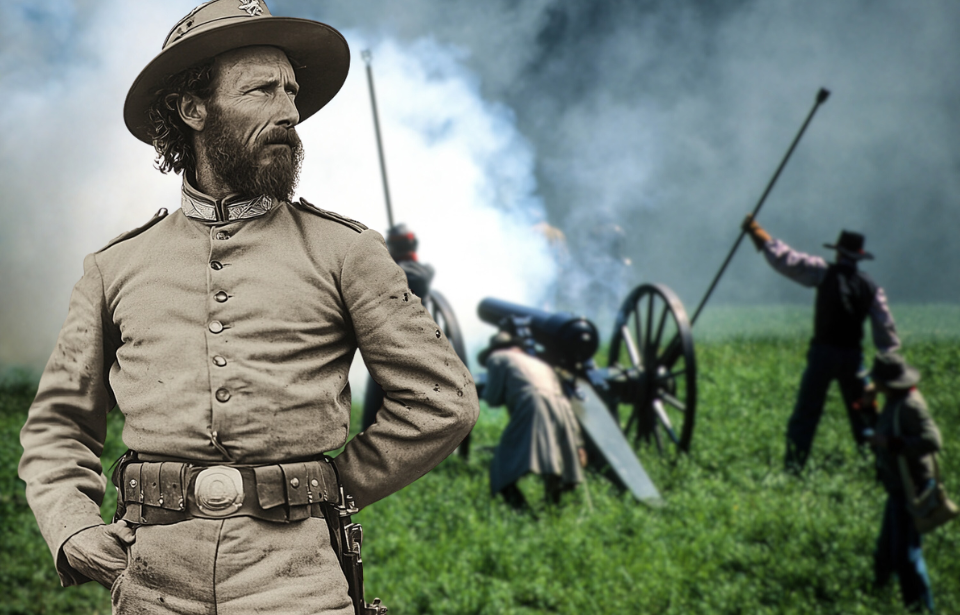The American Civil War’s immense scale led to numerous unusual and out of the ordinary events. Among them were bullets meeting mid-air, a Union general with the same name as the Confederate president, mysteriously glowing wounds, and perhaps most famously, Confederate Brig. Gen. Martin Green’s bold claim of invincibility just moments before his death.
Confederate Brig. Gen. Martin Green
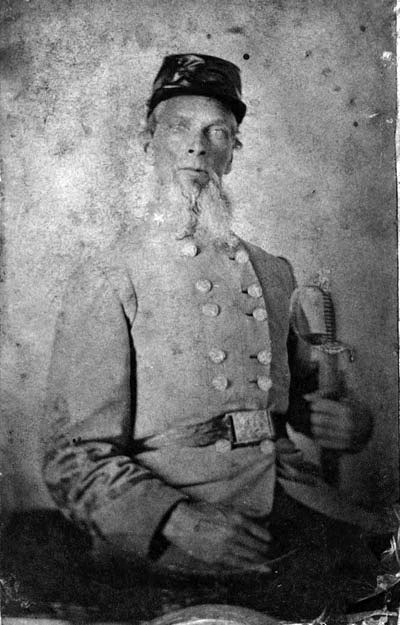
Martin Green was born on June 3, 1815, in Fauquier County, Virginia. At 21, he moved to Missouri, where he and his brothers set up a sawmill. Around this time, he was appointed a judge on the Lewis County Court, while his brother pursued a political career as a Senator with Missouri’s Democratic Party.
With the outbreak of the American Civil War in 1861, Green emerged as a leading secessionist figure in Missouri. He gathered a substantial following and organized a cavalry regiment, initially facing challenges from David Moore’s Union Home Guard Regiment. Despite these difficulties, Green achieved a significant victory with an assault on Lexington, though he soon experienced several setbacks.
A year into the conflict, Green was promoted to brigadier general and took command of John S. Bowen’s division during the Siege of Vicksburg. This battle was marked by Union Maj. Gen. Ulysses S. Grant‘s offensive against the heavily fortified city of Vicksburg, Mississippi, one of the last Confederate strongholds along the Mississippi River.
Irony of Martin Green’s last words
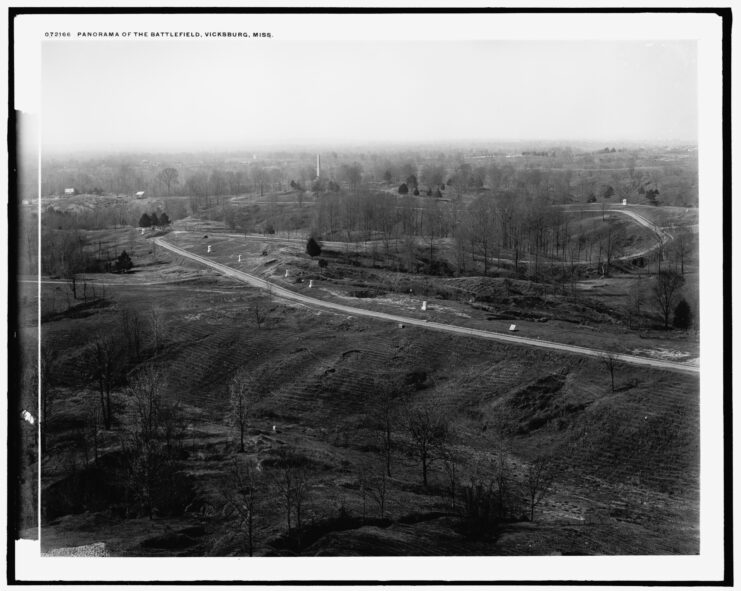
On June 27, 1863, Martin Green carefully inspected the fortifications of Vicksburg, undaunted by the Union forces nearby who were determined to defeat him and his men. Though advised to seek shelter, he boldly responded, “A bullet has not yet been molded that will kill me.”
Tragically, Green’s boastful words were soon proven false when a Union sharpshooter fatally struck him in the head just moments later, taking his life instantly.
A similar incident happened with Union Gen. John Sedgwick
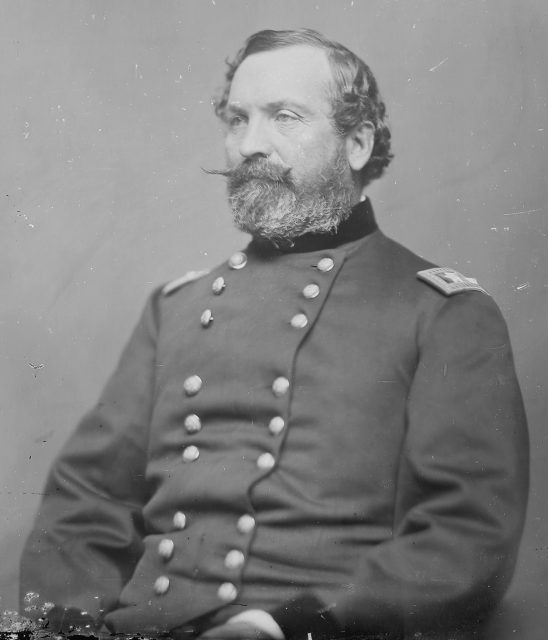
A similar incident happened to Union Gen. John Sedgwick, one of the highest-ranking officers to die during the Civil War. Sedgwick’s grandfather was also a military general, serving alongside George Washington. With such a heritage, it wasn’t surprising that he, too, served.
Before the Civil War began, Sedgwick had fought in Seminole Wars, the Mexican-American War, the Utah War and the American-Indian Wars. When the Civil War broke about, he was a colonel and assistant inspector general with the Military Department of Washington. He was promoted to the rank of brigadier general in August 1861.
John Sedgwick at the Battle of Antietam
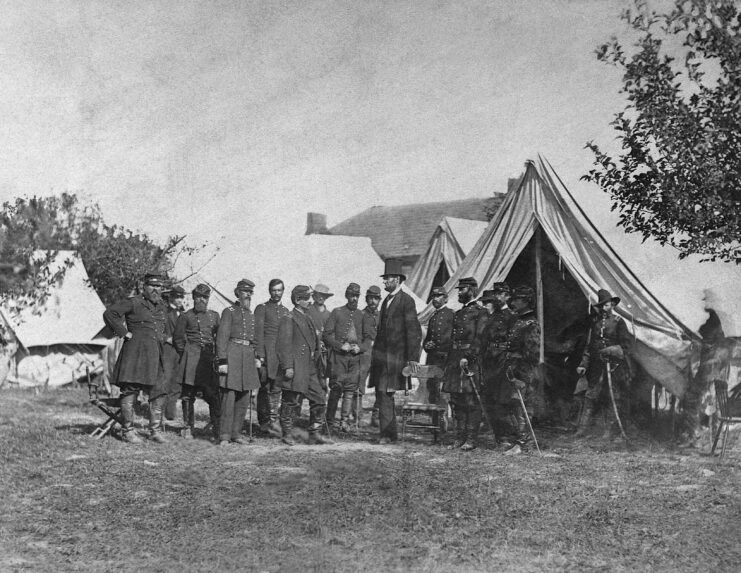
During the Battle of Antietam, Sedgwick and his division were tasked with carrying out a poorly planned attack by Maj. Gen. Edwin Sumner, resulting in Sedgwick being shot three times. He spent months in recovery.
At the Battle of Spotsylvania Court House, Sedgwick was overseeing artillery placement when Confederate sharpshooters, stationed 900 meters away, opened fire. As his troops scrambled for cover to evade the bullets, Sedgwick, frustrated by their response, stood firm. He remarked to his men, “What? Men dodging this way for single bullets? What will you do when they open fire along the whole line?”
An ironic end
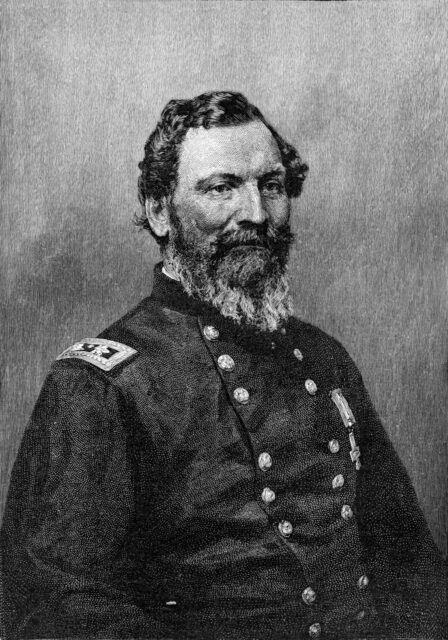
However, they remained in cover. Despite being more familiar than most with being shot, Sedgwick was ashamed by how they were acting and said, “Why are you dodging like this? They couldn’t hit an elephant at this distance.” Shortly after these famous last words, the Union general slumped over dead, having been shot in the head.
Want War History Online‘s content sent directly to your inbox? Sign up for our newsletter here!
A well-respected general, Sedgwick’s death hit Grant hard. Upon hearing the news, he asked, “Is he really dead?”
